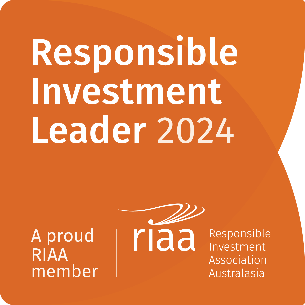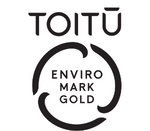Investing in a Sustainable World

6th April 2021: This month’s interest piece has been written by Victoria Harris, Portfolio Manager of the Devon Australian and Sustainability fund. The integration of Environmental, Social and Governance (ESG) factors continues to grow in importance as a key component of the investment process. As a consequence, ESG-focused funds are attracting significant inflows. Underpinning this rising importance of ESG for investors is a number of drivers. Firstly, there is a continued regulatory transition from voluntary disclosures to binding legislation. Secondly, there have been fundamental societal shifts in consumer behaviour, amplified by the events seen in 2020. And finally, ESG factors can now be more effectively tracked given improvements in technology and data.
We are at an important inflection point as ESG considerations reshape the investment management industry. While trends supportive of ESG have been occurring for some years now (an increasing focus on board oversight and accountability as one example), we believe several more recent events are now providing a catalyst for even stronger support; these include the global COVID pandemic, China’s commitment to a net zero emissions target and the strengthening pro-environmental policies of US President Joe Biden.
In the past few years, there have been record levels of investor engagement on sustainability issues. Furthermore, in 2020 we witnessed a sharp growth in demand for ESG investment opportunities and a rise in capital flows to sustainable investing investment strategies, ESG labelled funds, positive impact opportunities and green, climate and social impact bonds. Consulting firm PricewaterhouseCoopers (PwC) estimated that ESG funds in Europe would increase their share from approximately 15% currently to over 40% by 2025, with total assets rising from €1.7 trillion to €5.5 trillion. This is just a base-case scenario. Their bullish scenario forecasts ESG overtaking non-ESG assets over the next 5-years. We quote Europe, as this market is seen as the most advanced region in terms of ESG progress.
The Global Sustainable Investment Alliance (GSIA) estimated that the global sustainable investing market was US$23 trillion in 2016 and $31 trillion at the start of 2018, a 35% increase year-on-year. A more recent 2020 study estimated that investment in ESG funds is now over US$40 trillion, increasing by approximately US$10 trillion every two years with a growth trajectory that shows no sign of abating. In 2020, despite significant market volatility, ESG funds attracted global inflows every month, even during March. We view this outcome as a significant indicator of the level of demand for ESG investment strategies.
Until now, the biggest headwind for any ESG investment process has been the lack of reporting consistency and reliable data. Pleasingly, during 2020 new legislation was announced which would require around 200 NZ financial institutions to comply with TCFD reporting standards. Included under this umbrella are banks and institutional investors with more than NZ$1 billion in assets, and insurers with either a minimum of NZ$250mn in premium income or NZ$1 billion in assets. This legislation is pending parliamentary approval and if passed would come in to action during 2023.
Of further relevance on the data front is the timeliness and frequency of data releases. Financial markets are accustomed to financial data being released in a periodic way. However, when it comes to ESG, material developments can happen overnight, and as such the demand for real-time data continues to grow. New technologies such as Artificial Intelligence and Big Data are enhancing the quality of releases in this area. ESG rating providers like MSCI and Sustainalytics are creating models, frameworks, rating profiles and methodologies in an effort to quantitatively measure ESG risks and opportunities. There are now over 80 ESG rating providers globally that supply this information to the market. At a more macro level, ESG rating agencies agree on many things, but diverse data and methodologies mean they often come up with quite different results. There is still a lack of standardization and accepted evaluation criteria. This fragmentation is also reflected in the wide range of ESG index providers.
ESG data can also sometimes be inconsistent across companies in the same sector, prone to human error, out-of-date or difficult to decipher. However, these data challenges are not unique to ESG information, and while the information may not be perfect, investors and other interested stakeholders are increasingly demanding that the data be used to provide a more comprehensive picture of the potential risks and rewards from a given investment opportunity.
At Devon, we are taking concrete steps to contribute to the improvement of reporting and data flow, one example being our engagement with those companies listed on the NZX50 Index to promote improvements around their climate related disclosures. We are determined to sponsor better disclosures in this area, and outside our regular interactions with management teams and boards on this topic we now conduct a formal annual engagement with listed companies to examine their compliance (or not) with the guidelines surrounding their carbon emissions. In addition to this initiative we are also a signatory to the Climate Action 100+ initiative, a global collaboration targeting improved performance by listed corporates with their carbon strategies. Through this approach, together with our efforts in the RIAA Human Rights Working Group, we are contributing to a world with greater ESG transparency and awareness, and ultimately improved stakeholder outcomes.
Like any investment strategy, performance matters. And on this front, most ESG-tilted funds have good track records. Part of this could be explained by ESG funds historically having a preference for Growth stocks, and over the past decade this style has performed well. However, we’re also starting to see strong evidence that stocks which have typically been captured under the Value banner have dramatically improved both their share price and ESG performances. This is very encouraging for us at Devon given that our investment process has a strong bias towards those stocks which are supported by fundamental valuation.
We are excited to be part of the force bringing positive change in the ESG arena and in particular are proud of the opportunity that we have provided our clients to access this secular shift through our recently launched Sustainability Fund.





